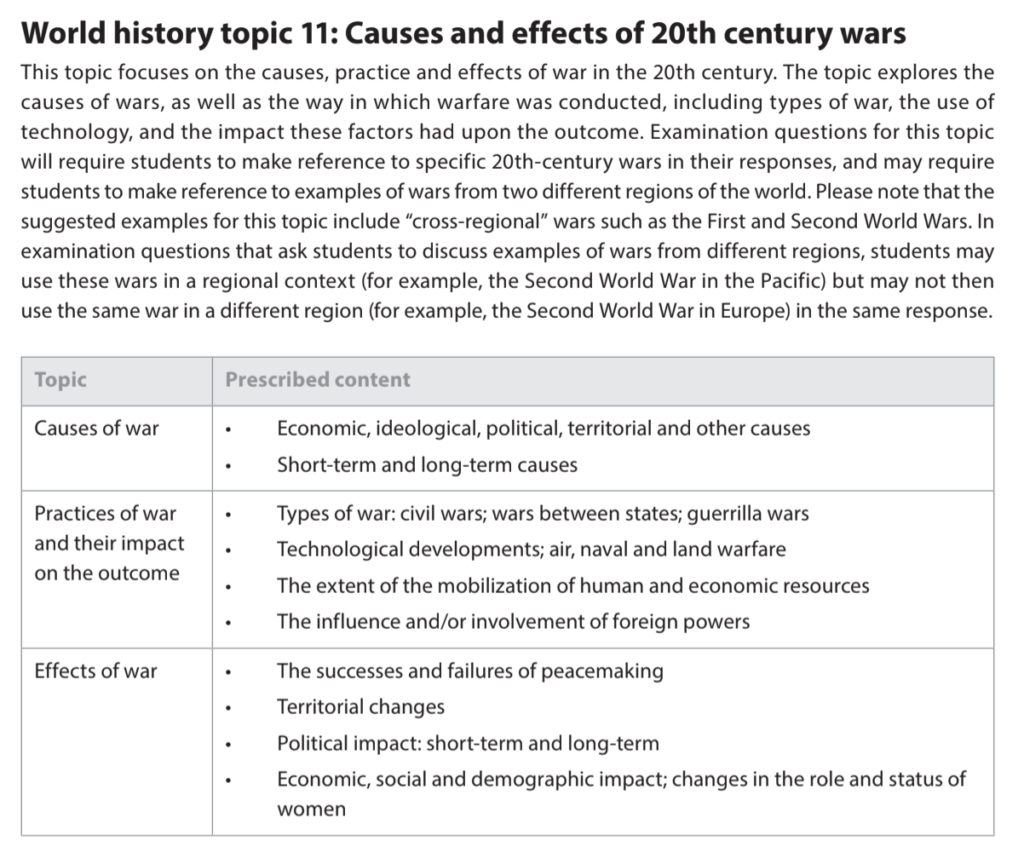
Comparing and Contrasting the Causes of Civil Wars
Example Paper 2 Questions
- Analyse the causes of two civil wars you have studied (from different regions).
- Compare and contrast the causes of two civil wars (from different regions).
- Examine the role of ideology in causing two civil wars (from different regions).
- Analyse the economic and political causes of two civil wars (from different regions).
For The Chinese & Spanish Civil Wars
The causes are the same or similar for both regarding:
• Socio-Economic – Both had weak / barely modernised economies
Both states had divided rural and urban populations.
Both states had rural populations frustrated with landlords.
The Depression fostered division (ends PDR / helps save CCP)
• Political – Both states had a history of weak / bad governing systems
Old systems recently replaced with new unstable ones
• Ideological – Serious ideological divides existed in both states
• Foreign Intervention – Foreign political ideas divided both peoples
USA (CH) & GE (SP) transported armies; kickstarted conflict
But there were also somewhat or very different causes as follows:
• Religious – A huge issue in Spain (China divided by economic/class ideas)
• Territory/Regionalism – Secessionism was a major issue in Spain, but not in China
• Military – The Spanish Army launched the coup/catalyst, not politicians
• Individuals – There was no Spanish equivalent to the dogmatic Chiang
• Foreign Intervention – Foreign exploitation of China’s economy caused much anger China had been invaded by Japan (saved/strengthened CCP)
Example Response:
“Compare and contrast the causes of two civil wars from two regions”
Intro: The Chinese Civil War (1946-49) and the Spanish Civil War (1936-39) had many similar causes, yet there were also considerable differences in their origins. Ideology was at the heart of both conflicts and foreign intervention was a key factor too. Conflict was also rooted
in long-term economic issues in both countries. However, in China, personalities were arguably more important in causing conflict, contrasting with the role of institutions like the military in Spain. Finally, religion was a huge issue in Spain, but not so in China. Overall…
P1: Perhaps the most similar cause of both civil wars was ideology. In Spain, ideology was at the heart of the conflict… Similarly, ideology was the root cause of the conflict in China…
P2: Economic issues also underlay the conflict in both countries. In Spain, economic inequalities created divisions… In China, economic issues also led to sharp divisions… The Depression also had key impacts… Both states also had a history of bad governing systems…
These had recently been replaced with new unstable systems, creating room for extremists…
P3: Furthermore, both conflicts were arguably the result of foreign intervention. In China, the Japanese invasion… After WWII, the US transported Chiang’s soldiers… Similarly, in Spain, Germany transported Franco’s army from Morocco, without which the coup would not have survived to become a civil war… Ideological divides were rooted in foreign ideas in the first place… However, foreign intervention was arguably more important in…
P4: Nevertheless, there were considerable differences in the origins of the wars. In Spain, there was no one clear leader who precipitated the conflict: the forces and the ideologies they claimed to represent were more important. However, in China the actions of Chiang were crucial in understanding why the civil war broke out… Moreover, in Spain the civil war was initiated by the military, while in China…
P5: Finally, while religion was a major reason for Spain’s civil war, it was not a huge issue inChina… Likewise, secessionism was a big issue in Spain, but not in China…
Conclusion: In conclusion, we can see that… Overall, in Spain it was felt that the traditional ‘pillars’ which supported the country were under threat whereas in China both sides involved were relatively new forces on the political scene. It could therefore be argued that the origins of the
Spanish Civil War were heavily reactionary but in China the opposing sides were fighting for the heart of a new country
